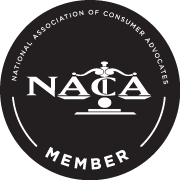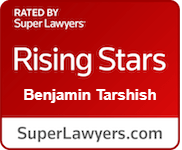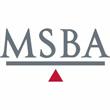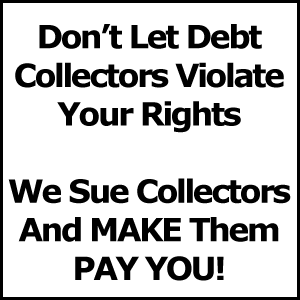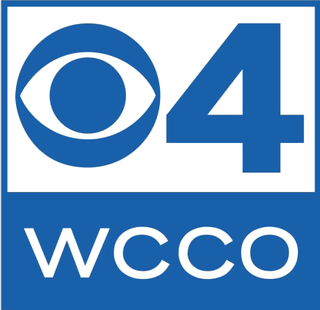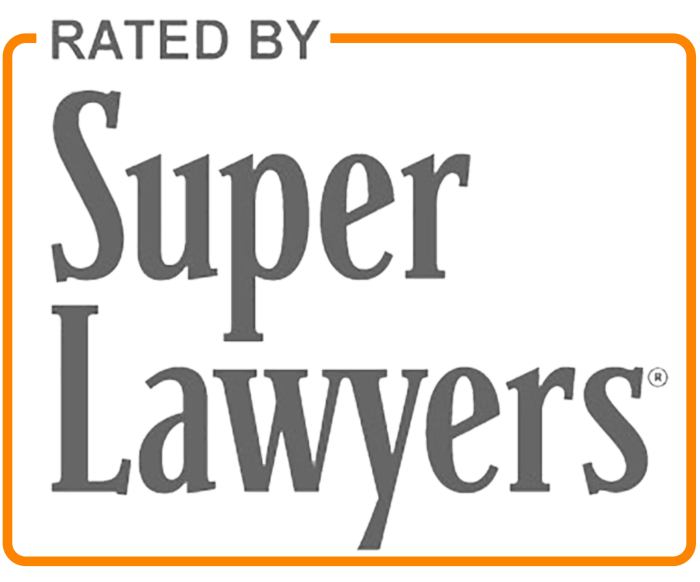Did you find unauthorized or fraudulent charges in your bank account? Did someone steal your ATM Card? Did a cybercriminal steal money from your bank account? The Electronic Fund Transfer Act (“EFTA”) will protect you, but YOU MUST ACT FAST!!
What is the EFTA?
The Electronic Fund Transfer Act (“EFTA”) is a consumer protection law that establishes consumers’ rights and financial institutions’ obligations for electronic transactions (e.g., debit card transactions, ATM transactions, Peer-to-Peer (P2P) transactions, Cash App, Venmo, PayPal, Zelle, direct deposits). The EFTA limits consumer losses from unauthorized electronic fund transfers. The EFTA also limits consumer liability for a lost or stolen debit card and other EFT situations.
What type of transactions or transfers are protected?
The EFTA was specifically designed to protect consumers from unauthorized electronic fund transfers. An electronic fund transfer (“EFT”) is: (1) a financial transaction; (2) that is initiated through electronic means; and (3) authorizes or instructs a financial institution to credit or debit a consumer’s account. Online banking transfers, bill-pay, mobile banking, payment apps, and other electronic fund transfers of moving money are regulated under the EFTA. For example, a consumer may use an ATM, a smartphone, or a computer to instruct a bank to credit or debit their account—all of which are EFTs.
Which accounts are protected?
The EFTA only applies to an individual consumer account (e.g., personal, family, or household purposes).
What is an unauthorized EFT?
The EFTA defines an unauthorized electronic fund transfer as “an electronic fund transfer from a consumer’s account initiated by a person other than the consumer without actual authority to initiate the transfer and from which the consumer receives no benefit.” In other words, an unauthorized EFT is: (1) an electronic fund transfer initiated by someone other than the consumer; (2) the person does not have authority to make the electronic fund transfer; and (3) the consumer does not receive any benefit from the transaction.
What type of transactions or transfers are NOT protected?
The EFTA does not apply to transfers by paper check, wire transfers between banks or companies, and non-electronic transfers.
Which accounts are NOT protected?
The EFTA does not apply to a business or a commercial account.
What is NOT an unauthorized EFT?
If a consumer voluntarily gives a trusted person access to their account through an ATM card, access code, or PIN and the trusted person transfers the consumers money, such transfers will not be considered unauthorized. There will be no protection under the EFTA. However, there is one exception to this rule. If a consumer provides someone access to their account under false or fraudulent pretenses, such access may be considered unauthorized. For example, if a consumer provides access to a fraudster pretending to be a bank representative, any subsequent transfer may be considered unauthorized.
If a consumer has provided access to their account to a trusted person, the consumer must notify their bank if the consumer no longer wishes to provide access to their account. The consumer must tell the bank that the trusted person no longer has permission to access the account.
How should I protect myself?
Consumers must closely monitor their financial accounts for errors, unauthorized transfers, or any transaction that is suspicious or unfamiliar. A consumer must notify their bank for any unusual or unauthorized transaction. It is critical for consumers for check their accounts monthly, if not daily or weekly. Similarly, consumers should be checking their mobile banking or financial apps to account for all financial transactions. Consumers can also set up email or text alerts for financial transactions.
What happens if I find an Unauthorized EFT? – YOU MUST ACT QUICKLY!
If a consumer discovers an unauthorized financial transaction in their bank account, the consumer has the right to dispute the unauthorized transaction. The EFTA explains the process consumers must follow and the important deadlines that affect their potential losses. A consumer may make a dispute in-person or over the phone to their financial institution. In general, the sooner a consumer notifies the bank of any unauthorized transaction, the more protection the consumer will likely receive.
When should I contact my bank to dispute an unauthorized EFT? – YOU MUST ACT QUICKLY!
The consumer should make a dispute as soon as possible. The EFTA has three separate timelines for disputed transactions. A consumer’s liability depends on when the consumer notifies their financial institution. The examples below explain the strict timelines:
Example Scenario A: (1) Thief steals a consumer’s debit card; (2) The thief uses the debit card to make purchases without the consumer’s knowledge, authorization, or consent; (3) The bank mails a monthly account statement to the consumer; and (4) The consumer realizes their debit card has been stolen and finds the unauthorized transactions.
Two Business Days – $50.00
In the above Example A, if the consumer reports the unauthorized transactions/purchases within two business days of discovering the transactions on her monthly statement, the consumer’s losses are limited to $50.00. Even if the thief steals $5,000 from the consumer’s bank account, the consumer will be protected because the consumer timely notified the bank.
60 Calendar Days – $500.00
In the above Example A, if the consumer waits longer than two business days to dispute the transaction but fewer than 60 calendar days from the statement date, the consumer’s losses are limited to $500.00. Again, even if the thief steals $5,000 from the consumer’s bank account, the consumer will be protected because they notified the bank within 60 days from the date of the account statement.
Longer than 60 Calendar Days – Unlimited Liability
In the above Example A, if the consumer waits longer than 60 calendar days from the statement date that first disclosed the transaction, the consumer’s losses may be unlimited until the consumer notifies the bank.
What is an Access Device?
An access device is a code, card, or other method to access a consumer account while making an electronic fund transfer. A debit card, ATM Card or a PIN are examples of an access device. If an unauthorized transaction is obtained without an access device, a consumer is not liable for any loss provided the consumer disputes the transaction within 60 days after the bank sends the consumer a periodic account statement. If a fraudster gains access to your account through a data breach or some kind of electronic hack, such access was not obtained through an access device.
Example Scenario B: (1) A computer hacker or cybercriminal hacks into your bank’s computer system; (2) the hacker or cybercriminal electronically transfers money from the consumer’s bank account into an unknown account; (3) The bank mails a monthly account statement to the consumer; and (4) The consumer realizes the unauthorized transactions and that their funds have been stolen.
60 Calendar Days – No Liability
In the above Example B, if the consumer disputes the transaction within 60 calendar days from the statement date that identified the transaction, the consumer will not be liable for any loss. Even if the cybercriminal steals $5,000 from the consumer’s bank account, the consumer will be protected because they notified the bank within 60 days from the date of the account statement.
How should I notify my bank about unauthorized transactions?
If a consumer discovers an unauthorized financial transaction in their bank account, the consumer has the right to dispute the unauthorized. A consumer may notify their bank in any manner that may be reasonably required in the ordinary course of business. A consumer may dispute in-person at a local branch, over the telephone, in a writing to the bank, an email to the bank, or even an electronic instant message chat with a bank representative. It is always best to make a timely dispute in writing. A consumer should keep copies of everything they send to the bank. It is also a good idea to send any dispute via certified mail or any other method where a consumer can track the deliver of the dispute.
What if the bank asks me for Written Notice?
Under the EFTA, if a consumer makes an oral dispute, the bank may require a consumer to provide written confirmation of the disputed transactions within 10 business days of the oral dispute. The consumer is required to comply with the bank’s request for written confirmation.
What happens after I make a dispute to the bank?
After a consumer notifies a bank of a disputed EFT or an unauthorized EFT, the bank is required to act on the dispute. The EFTA requires the bank to “investigate the alleged error, determine whether an error has occurred, and report or mail the results of such investigation and determination to the consumer within ten business days.” The bank is required to promptly investigate the disputed charges and finish the investigation within 10 business days. The bank is required to report its findings to the consumer within three business after its investigation is complete. If the bank confirms that the consumer’s account contains errors or unauthorized transactions, the bank is required to correct the error within one day. Correcting the error includes refunding the money that was taken without the consumer’s authorization.
What if the bank needs longer than 10 days?
If the bank needs longer than 10 days to investigate the disputed charges, the bank must provisionally credit the consumer’s account for any amounts that the consumer claims is unauthorized. The bank must notify you within two business days of the provisional credit. The bank then has up to 45 calendar days to investigate the dispute.
What happens if the bank denies my dispute?
If a consumer notifies the bank of an unauthorized charge, the bank is required to prove that an EFT was authorized before it can deny a consumer’s dispute. If the bank contends that the consumer did authorize a transaction, the bank must provide evidence to prove that the consumer actually authorized the transaction. Banks and financial institutions do not always follow the rules. Even when a consumer does everything required under the EFTA, a bank may still fail to refund the consumer. Some banks or financial institutions routinely tell consumers they are responsible for the fraudulent charges even when the consumer did nothing wrong. For example, sometimes a cyber thief will make numerous unauthorized transactions to the same store (e.g., cyber thief makes 25 individual transactions to Walmart within 60 days). In this scenario, often times a bank or financial institution will deny the consumer’s dispute by claiming that the consumer authorized the transactions because similar transactions have appeared on the consumer’s account. In these cases, a consumer protection attorney that handles EFTA cases will be able to help.
Do I need a lawyer and how much does a lawyer cost?
If the bank or financial institution does not follow the rules under the EFTA, a consumer protection lawyer can help you. When a bank or a financial institution violate a consumer’s rights under the EFTA, the bank or financial institution is required to pay the consumer’s legal fees. For these reasons, a consumer protection attorney that regularly handles EFTA cases will likely be able to represent a consumer on a contingency fee basis. In a contingent fee arrangement, the consumer does not pay any legal fees up front. Instead, the lawyer gets paid when the consumer gets paid. The lawyer gets paid from any legal settlement, recovery, or award.
What are my remedies under the EFTA?
If a bank fails to comply with the EFTA, the consumer has the right to request monetary damages. There are three types of damages. First, there are actual damages. Actual damages are damages that compensates a consumer for actual out-of-pocket losses, including emotional distress, lost wages, or money stolen from the consumer’s account. Second, there are statutory damages from $100.00 to $1,000. Statutory damages are damages that congress has determined a consumer is entitled to because the bank violated the EFTA. Finally, there are treble damages. Treble damages are three times the amount of the consumer’s actual damages. These damages may potentially be obtained in certain circumstances and are meant to punish the financial institution for, amongst other things, not limiting a consumer’s losses. In addition to the categories of damages, the bank or financial institution is required to pay the consumer’s attorneys fees, costs, and legal expenses when it violates the EFTA.
Please call 952-361-5556 now or fill out our Free Case Evaluation Form and one of our attorneys handling EFTA can evaluate your case.




